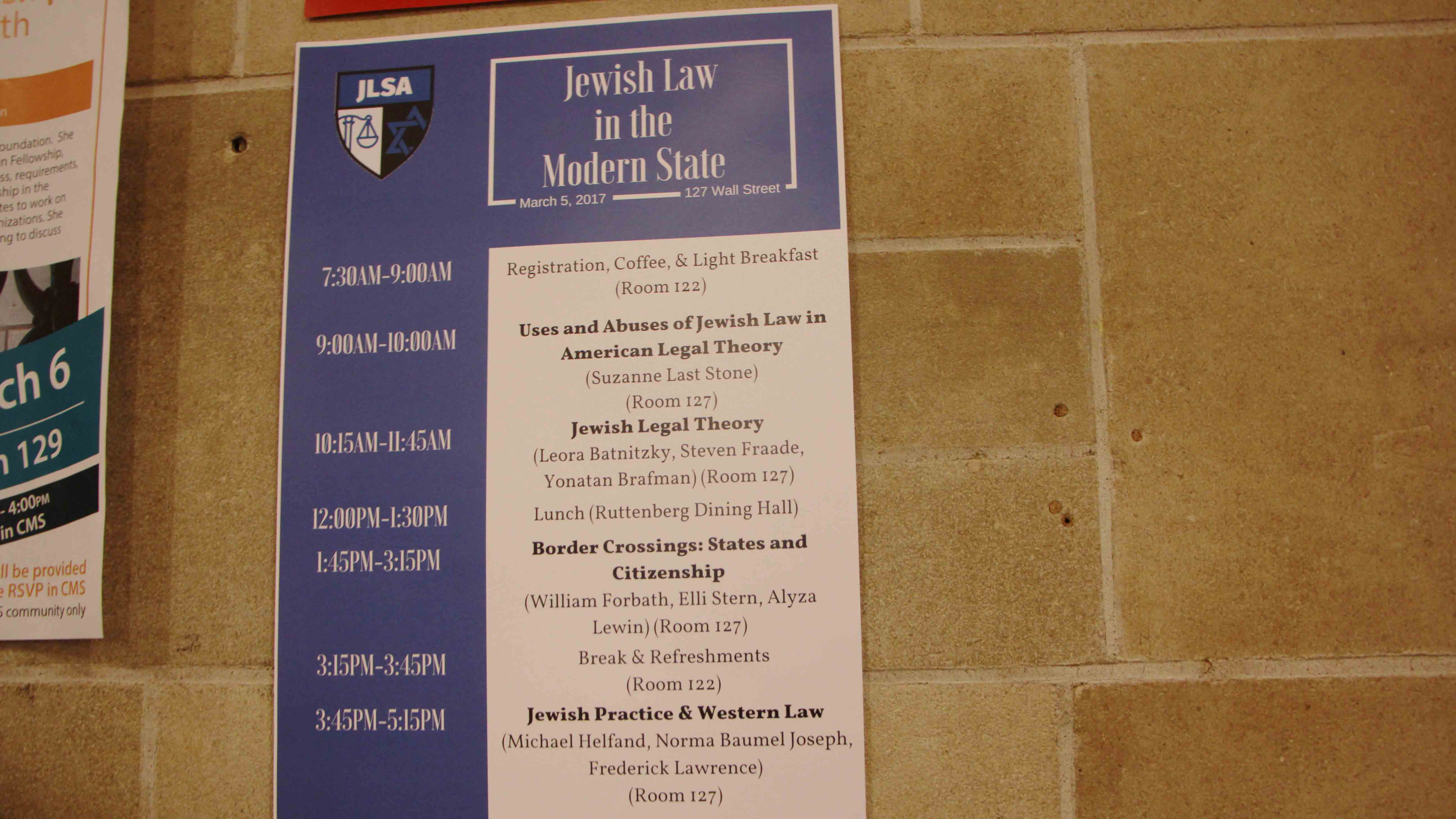
Jewish law and Ph.D. students at Yale hosted a conference on Sunday featuring scholars and practitioners in Jewish legal studies in the hopes of reinvigorating the discipline, which has long been neglected at the Law School, organizers said.
The one-day conference, “Jewish Law in the Modern State,” attracted over a hundred students and scholars and addressed topics from notions of Jewish national identity to religious law in a secular state. According to Aaron Levine LAW ’17, one of the conference organizers, the tradition of Jewish Law studies at Yale Law School, which was brought to its peak by professor Robert Cover in the 1980s, came to a halt after the death of professor Robert Burt LAW ’64 in 2005.
“Being a law school like Yale where the focus is not so narrow as to what the black letter law is, but to the larger questions of where law comes from, it’s important to have people focus on [Jewish law] more than we are currently,” Levine said, adding that Jewish law is a cornerstone to Western legal traditions and the concept of a Western state.
While peer institutions such as Harvard and Columbia Law Schools have established centers dedicated to Israeli and Jewish legal studies in the last decade, no faculty member at Yale specializes in the area, Levine said.
He added that although it is challenging to set up a formal structure for Jewish legal studies at Yale, he hopes that the conference demonstrated students’ interest in the field and made a step towards establishing such a structure. In his keynote address, David Saperstein, an American rabbi who taught seminars in Jewish Law at Georgetown University Law Center for 35 years and was the U.S. ambassador-at-large for international religious freedom, emphasized the relevance of the discipline in contemporary political debates.
Although the Jewish legal system is nonbinding for non-Jewish people, Saperstein said, the moral values inherited from the Jewish experience such as the Exodus and the Holocaust are universal. He added that those universal values, including the obligation to the poor and the weak, and the obligation to protect the environment are important for evaluating public policies.
Saperstein told the News that he has seen growing interest in courses about religion and church-state relations. The trend of people using religious arguments to justify discrimination is a recent development, Saperstein said, citing examples of bakers who refuse to work for LGBTQ weddings and others who decline to facilitate reproductive health care.
The conference also featured three panels including Jewish Legal Theory and Jewish Practice & Western Law. Benjamin Zivyon, a conference attendee who works under the Connecticut Attorney General and is originally from Israel, said the panels encouraged him to apply the principles, logic and moral compass behind the Jewish Law to his work.
In the third panel, “Border Crossings: States and Citizenship,” D.C.-based attorney Alyza Lewin described her day-to-day work, which involves explaining to the court the Jewish legal principles behind her clients’ petitions. For example, she represented rabbis to negotiate with city leaders on setting up a menorah on public property and has used Jewish law in cases involving custody disputes and religious observances.
Lewin argued Zivotofsky v. Kerry before the U.S. Supreme Court in 2014, a case that held that Congress may not require the State Department to indicate in passports that Jerusalem is not part of Israel.







